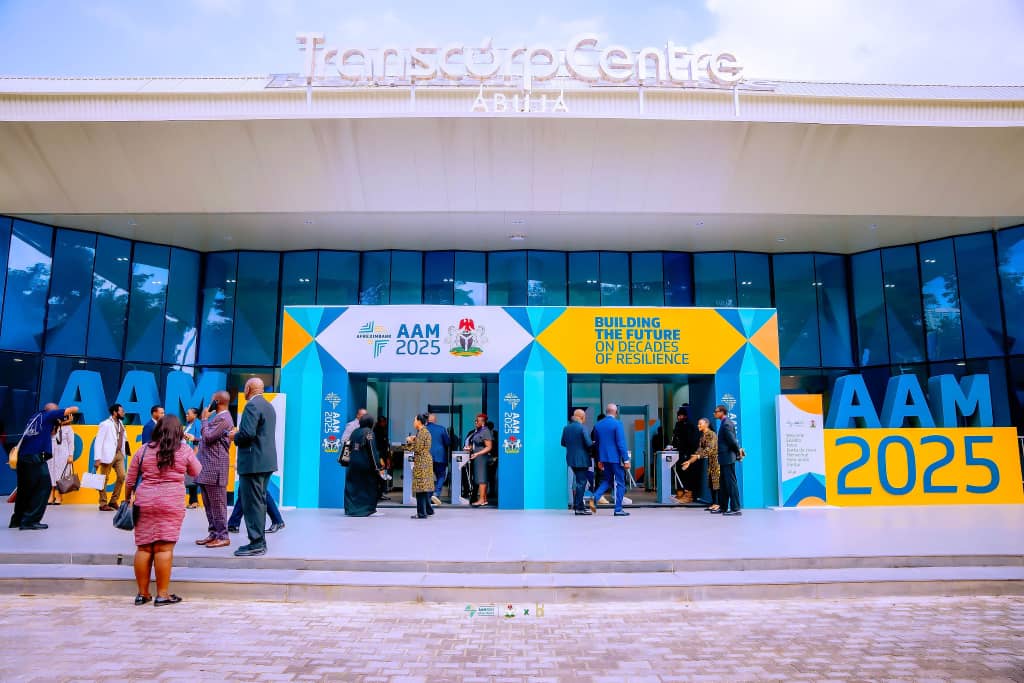This article was produced with the support of Afreximbank
The Pan-African Payment and Settlement System (PAPSS), an Afreximbank-led initiative aimed at simplifying cross-border transactions within Africa, has expanded its reach to 16 countries, with 15 financial institutions and 14 national switches now connected.
This milestone marks significant progress in the effort to boost intra-African trade by reducing reliance on foreign currencies, lowering transaction costs, and accelerating payment processes.
The system, which leverages digital innovation and real-time settlement capabilities, is seen as a cornerstone of the African Continental Free Trade Area (AfCFTA) and a major step toward economic integration across the continent.
Speaking on the journey so far for PAPSS, during a panel session on the theme: ‘Technological Advancements & Artificial Intelligence — Pathways to Africa’s Socio-Economic Development,’ at the ongoing Afreximbank Annual Meetings in Abuja, Nigeria, Mr. Mike Ogbalu, CEO, PAPSS, who was among the panelists, revealed that, “PAPSS has expanded to 16 countries, with 15 financial institutions and 14 switches connected across Africa—and we’re growing rapidly. We’re beginning to see meaningful scaling and adoption of PAPSS capabilities across digital channels, which is accelerating our impact.”
He pointed out that AI was also helping transform businesses on the continent.
“Today, payments are more about data than physical cash. With AI tools, we can process and analyse vast datasets to generate actionable insights. For instance, we now use AI in our Anti-Money Laundering (AML) systems. Instead of relying solely on static rules, our systems are now trained to detect and learn new patterns, making it easier to predict and prevent fraud.
“We’re optimistic about the pace of adoption. We’re currently active in 16 countries and are seeing momentum in Francophone Central and West Africa. By the end of this year, we expect to expand to 30 countries, covering more than 500 million bank accounts,” Ogbalu said.
Also, commenting on the theme of the session, the panelists pointed out that as Africa grapples with rising food insecurity and a rapidly growing population, experts have stressed the need to turn to Artificial Intelligence (AI) and innovation as critical tools for transforming the continent’s agricultural landscape.
They emphasised that smarter farming methods, AI-driven data systems, and digital infrastructure can unlock productivity, reduce post-harvest losses, and help achieve food sovereignty.
Prof. Nicholas Ozor, Executive Director, African Technology Policy Studies Network (ATPS), in his contribution, noted that technology and innovation drive everything globally.
“In Africa, over 70% of the population is involved in agriculture, yet we still struggle to feed ourselves. Meanwhile, in countries like the United States, only about 4% are involved in agriculture, and they are food-sufficient. The difference lies in the application of science, technology, and innovation.
“Innovation enables us to do things smarter. Currently, Africans are increasingly embracing technology across all sectors, because it is the only sustainable way to achieve economies of scale and increase productivity.
“To ensure food security, four elements must be addressed: availability, access, utilisation, and stability. For example, 120 farmers working for eight hours can be replaced by a single tractor that completes the same task in just one hour. That’s the power of technology.
“While Africa knows how to produce raw materials, we often lack the ability to add value. Take cocoa, for instance: we produce it, yet countries like Switzerland process it and make the best chocolates. This illustrates our underutilisation of the value chain,” Ozor explained.
In terms of food stability, he pointed out that there are climate-smart technologies that use predictive analytics to forecast weather patterns.
“In my organisation, for example, we’ve developed tools that can accurately estimate rainfall volume for an entire year in specific locations. At ATPS, we are leading efforts in developing, deploying, and scaling AI across food systems and agriculture.
“We currently have 12 projects in 10 African countries, including Nigeria. One such project uses AI in the cultivation and marketing of scent leaf (locally known as Nchuanwu), widely grown in Southeastern Nigeria (Capsicum delis).
Technology now allows remote farm management through the Internet of Things (IoT). I can irrigate crops from where I am, monitor soil moisture using sensors, and automate watering. I can track my livestock, monitor their movement, detect when an animal is in heat and needs to be mated—all from a distance. We can even embed chips in cattle to prevent rustling and ensure security. This is the power of technology in agriculture and beyond,” he added.
For Prof. Andreas Klasen, Honorary Research Associate, University of Oxford, innovation across the African continent is not just desirable, but it’s essential.
Many brilliant companies need help scaling effectively, and digitisation presents a transformative opportunity.
“Africa has the chance to leapfrog development stages, a point emphasised during the opening session. I worked on a project for the Asian Development Bank in Georgia last year, focused on economic development and digital trade. What we discovered applies equally to Africa: digitisation is a game-changer for developing and emerging economies.”
 Sign in with Google
Sign in with Google 
